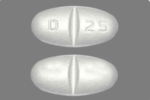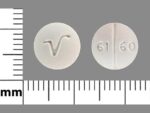One small study has reported that following a 1000 mg dose of acetaminophen to nursing mothers, nursing infants receive less than 1.85% of the weight-adjusted maternal oral dose.
Acetaminophen is excreted into human milk in small concentrations. One case of a rash has been reported in a nursing infant. Acetaminophen is considered compatible with breast-feeding by the American Academy of Pediatrics. Barbiturates are excreted in breast milk in small amounts.
The significance of the effects on nursing infants has not been reported. Because of the potential for serious adverse reactions in nursing infants from butalbital, a decision should be made whether to discontinue nursing or to discontinue the drug, taking into account the importance of the drug to the mother. Caffeine is excreted into human milk in small amounts.

Adverse effects in the nursing infant are unlikely. However, irritability and poor sleep patterns have been reported in nursing infants. The amount of caffeine generally found in caffeinated beverages is considered to usually be compatible with breast-feeding by the American Academy of Pediatrics. Because caffeine is excreted into human milk and because caffeine is metabolized slowly by nursing infants, consumption of more than moderate levels of caffeine by nursing mothers is not recommended.
Acetaminophen-butalbital-caffeine has been assigned to pregnancy category C by the FDA. Animal reproduction studies have not been conducted on this combination product. There are no controlled data in human pregnancy. Acetaminophen-butalbital-caffeine is only recommended for use during pregnancy when benefit outweighs risk.
Acetaminophen is routinely used for short term pain relief and fever in all stages of pregnancy. Acetaminophen is believed to be safe in pregnancy when used intermittently for short durations. Two cases of acetaminophen overdose in late pregnancy have been reported.
Can I Take Fioricet if I am Breastfeeding ?
In both cases neither the neonate nor the mother suffered hepatic toxicity. Investigations have revealed conflicting results with regards to the pharmacokinetic disposition of acetaminophen in pregnant women. One study has suggested that the oral clearance of acetaminophen is 58% higher and the elimination half-life is 28% longer in pregnant women compared to nonpregnant women. Another study has suggested that the elimination half-life is not different in patients who are pregnant.
That study also suggested that the volume of distribution of acetaminophen may be higher in pregnant women. One study has suggested that acetaminophen in typical oral doses may result in a reduced production of prostacyclin in pregnant women. That study also suggested that acetaminophen does not affect thromboxane production.
Barbiturates in general have been reported to readily cross the placental barrier. Withdrawal seizures have been reported in a two day old infant whose mother had taken a butalbital containing drug during the last two months of pregnancy.

Butalbital was found in the infant’s serum. Animal reproduction studies have not been conducted on butalbital. Caffeine has been assigned to pregnancy category B by the FDA. Both human and animal studies on caffeine have failed to reveal evidence of significant mutagenic or carcinogenic effects. Caffeine crosses the placenta. Fetal blood and tissue levels in the fetus are similar to those in the mother. Caffeine has been reported to be an animal teratogen only with doses high enough to cause toxicity in the mother. In 1980, the Food and Drug Administration issued an advisory (based primarily on animal evidence) which stated that pregnant women should limit there intake of caffeine to a minimum.
In a study of 2817 fertile women, no evidence of adverse effects from caffeine was found. The fecundability ratio (adjusted for known risk factors for time to conceive) was 1.03 between fertile women who consumed more than 7000 mg caffeine per month and those who consumed 500 mg or less per month. Furthermore, caffeine was not associated with infertility in 1818 infertile women and their primiparous controls. In another study (n=441) no evidence was found that moderate caffeine use increased the risk of spontaneous abortion, intrauterine growth retardation, or microcephaly.
Fioricet is not Recommended for Use in Children
Pain Medications, Pain Relief, and Pain Management



